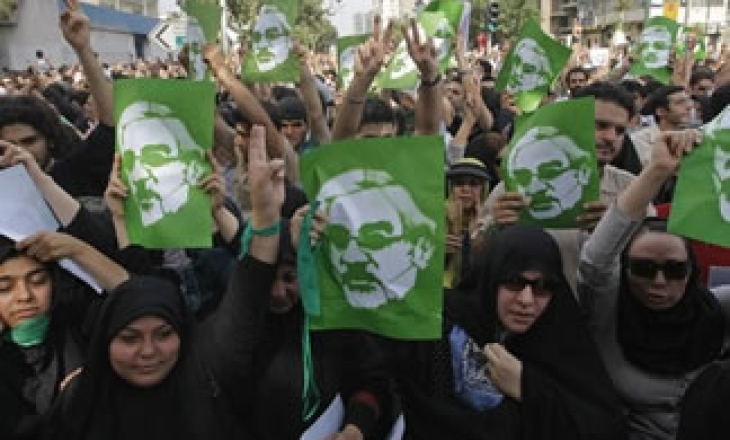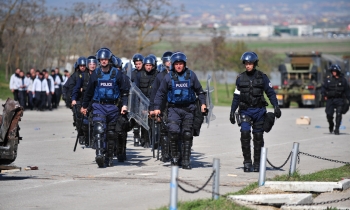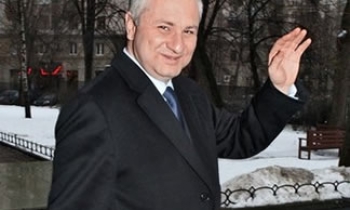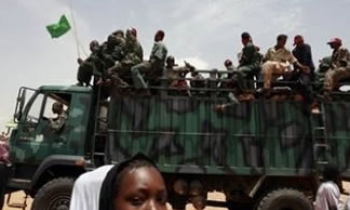Iranian authorities are continuing a crackdown on journalists and information that began after the announcement of the disputed presidential election results. Journalists are still being arrested and more censorship measures have been adopted as President Mahmoud Ahmadinejad’s allies try to suppress media coverage of fraud allegations.
“Independent sources of news and information find it very hard to make their voice heard now in Iran because of the censorship,” Reporters sans Frontières (RSF) said. “The authorities are tightening their grip on all news media and means of communication that could be used to dispute Ahmadinejad reelection ‘victory’. They are doing everything possible to limit coverage of the consequences of the election fraud.”
“A democratic election is one in which the media are free to monitor the electoral process and investigate fraud allegations but neither of these two conditions has been met for Mahmoud Ahmadinejad’s supposed reelection,” RSF said.
"We are outraged by the government militia attacks against journalists and media organizations," said Mohamed Abdel Dayem, Committee to Protect Journalists (CPJ) programme coordinator for the Middle East and North Africa. "The Iranian authorities must immediately cease threats and attacks against the press and guarantee that journalists are able to report freely."
The security services have moved into the offices of newspapers where they are reading articles and censoring content. Mehdi Karoubi, one of the candidates, referred to the censorship in a press release. “I cannot even publish my release in my newspaper Etemad Meli,” he said.
The newspaper’s front page (displayed on http://www.roozna.com/) shows a photo of Ahmadinejad at a rally with columns left blank because of editing by the censors. The newspaper Velayat in the province of Qazvin (north of Tehran) has been suspended for publishing a cartoon of Ahmadinejad.
Even governmental news sources have been targeted in the crackdown. Four interior ministry officials have been arrested for given results that were different from those announced by Ahmadinejad’s allies.
Four of the leading pro-reform newspapers have been closed or prevented from criticising the official election results following a warning from Tehran prosecutor general Said Mortazavi. Kalameh Sabaz, a daily owned by opposition presidential candidate Mirhossein Mousavi, was one of these. Its distribution was blocked and it was forced to change a front page announcing Mousavi’s victory. It has not been able to publish any issue since June 13.
The authorities have also launched a broad offensive against the Internet, controlling and blocking all news websites likely to challenge Ahmadinejad’s announced victory. Ten or so pro-opposition websites have been censored.
The international websites YouTube and Facebook are hard to access. The mobile phone network is being jammed. The service of the leading mobile phone operator, which is state controlled, has been suspended since 10 p.m. on June 13. The SMS messaging network has been cut since the morning of June 12, preventing use of Twitter.
The blockage of the foreign media has been stepped up. In addition to the blocking of the BBC’s website, the Farsi-language satellite broadcasts of the VOA and BBC – which are very popular in Iran – have been partially jammed. The BBC reported that their Farsi broadcasts have been the target of significant jamming “coming from Iran” since 1245 GM on June 12, and that the jamming has been getting steadily worse.
The authorities Monday ordered the Tehran bureau of the Arab satellite TV news station Al-Arabiya closed for a week after it broadcast video of the first demonstration following the announcement of Ahmadinejad’s reelection.
Foreign journalists have been prevented from covering the demonstrations, some have been notified that their visas will not be renewed, and some have been the victims of police violence. A member of a TV crew working for the Italian station RAI and a Reuters reporter were beaten by police in the capital. A BBC TV crew was threatened by police at one point, but demonstrators chased the police away. The correspondents of the German TV stations ARD and ZDF were forbidden to leave their hotel on June 13.
Two Dutch TV journalists working for Nederland 2 were arrested and expelled. Reporter Yolanda Alvarez of the Spanish television station TVE was deported together with her crew Tuesday.
James Longley, an American documentary filmmaker, and his translator were briefly detained by police on Sunday in Tehran while interviewing people near the Ministry of Interior. "They dragged me and my translator off to the Ministry of Interior building," Longley wrote in an email, according to CPJ. "They punched and kicked [the translator] in the groin. They ripped off his ID and snatched away both our cameras. A passing police officer sprayed my translator in the face with pepper spray."
Iranian authorities ordered the crew of the Spanish RTVE broadcasting network to leave the country Monday, Al-Jazeera reported. German public television channels ARD and ZDF told Agence France-Presse on Sunday that their correspondents in Iran were not allowed to broadcast their reports.
"The intimidation of media comes after President Ahmadinejad tried to blame media for his troubles," said Aidan White, International Federation of Journalists (IFJ) General Secretary. "He wants to pin the blame for angry protest by Iranians on foreign media, but reporters doing their job must not be made scapegoats for this crisis. Journalists should be able to report freely and without harassment."
Banning foreign media will not calm the situation but will only reinforce fears that the Iranian regime is trying to avoid independent scrutiny. "Censorship and bans on media will not convince the world that these elections were fair and nor will they cool the temperature on the streets," said White.
Eleven Iranian journalists have been arrested since June 12. Reza Alijani (winner of the 2001 RSF-Fondation de France press freedom prize), Hoda Sabaer and Taghi Rahmani were arrested on June 13. Alijani and Rahmani were released Monday evening. Freelancer Kivan Samimi Behbani, the former editor of Nameh (“The Letter”), an independent monthly closed in 2005, and Ahamad Zeydabadi were also arrested and then released.
Abdolreza Tajik was arrested at midday Monday at the headquarters of the newspaper Farhikhtegan by three men in plain-clothes. A member of the Human Rights Defenders Centre, Tajik has worked for many Iranian publications that have been closed by the authorities, including Bahar (closed in 2001), Hambastegi (closed in 2003) and Shargh (closed in 2008).
Five of the journalists arrested in the past few days are still detained. They include Said Shariti, the editor of the news website Nooroz, who is being held by the police, and Mahssa Amrabadi of the daily Etemad Melli. She was arrested at her home Monday by intelligence ministry agents who came with a warrant for the arrest of her husband, fellow-journalist Masoud Bastani. He was not at home at the time.
Two women journalists working at the Mousavi campaign headquarters were physically attacked on June 12. The Mousavi campaign news centre was ransacked on June 13 by Ahmadinejad supporters, who destroyed its computers. The Qalam News agency operated out of this centre.
There is no word of about 10 other journalists who have either been arrested or gone into hiding.










